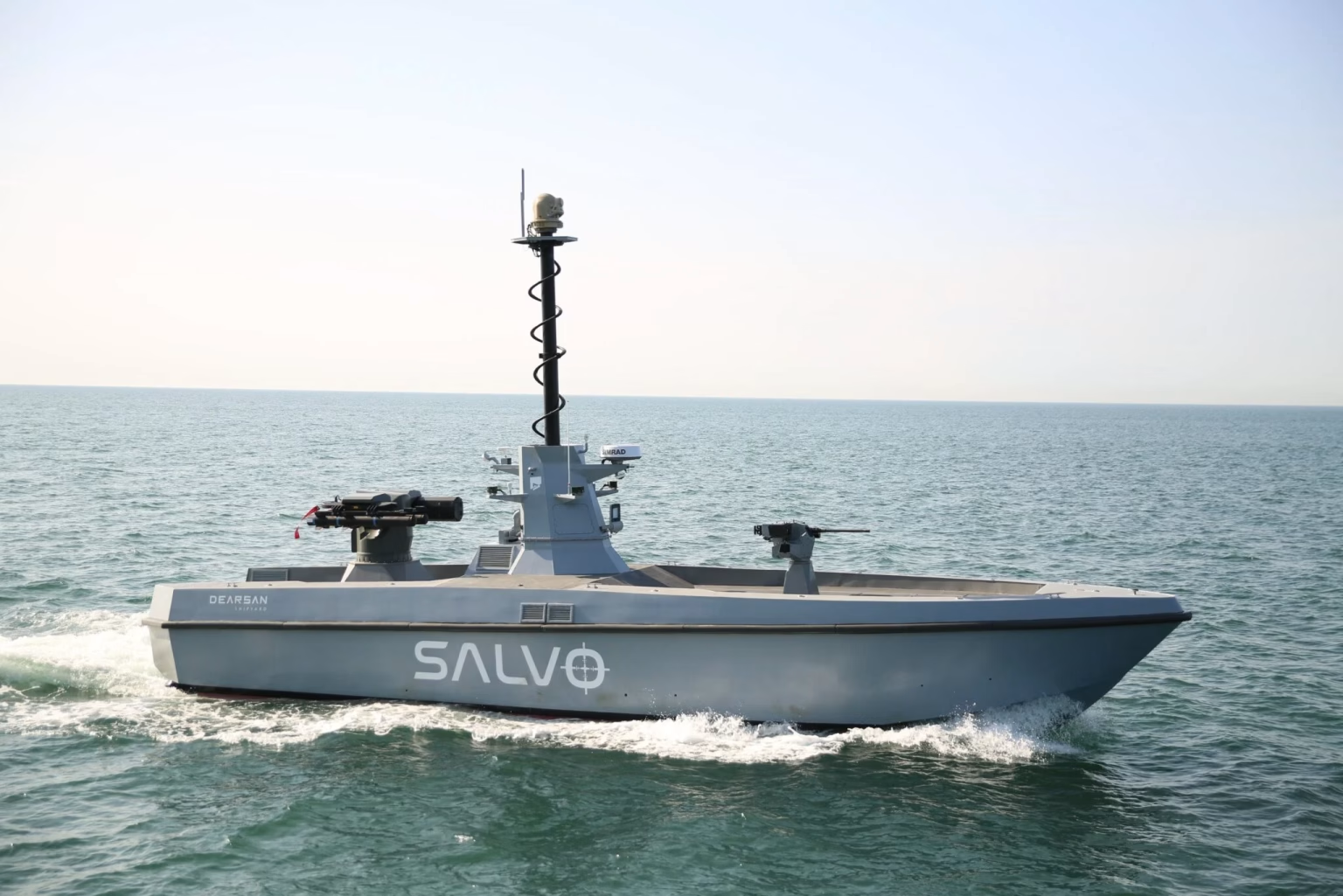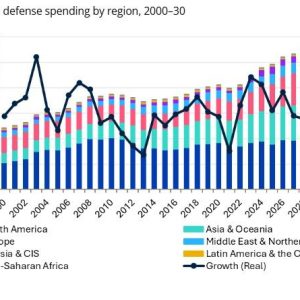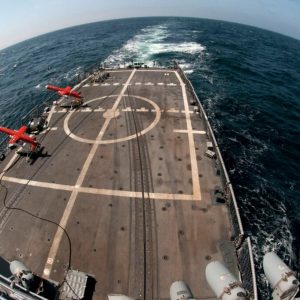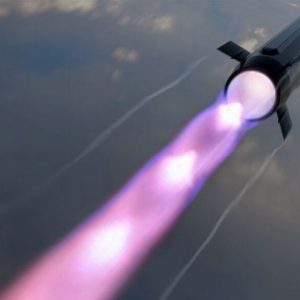Azerbaijan’s Navy has for the first time showcased its Turkish-made Salvo unmanned surface vessel (USV). The move signals a determined push to expand maritime power in the Caspian Sea amid growing security concerns.
The debut took place during recent naval exercises. Baku-based defense analyst Fuad Shahbazov described it as a “very timely decision” in light of rising risks in the region.
Turkish Industry Partnership and Technical Specifications
Turkish shipbuilder Dearsan developed the Salvo with ASELSAN, ROKETSAN, and YALTES. The vessel is 14.8 meters long, 3.8 meters wide, and features a composite hull. It reaches speeds of 45–60 knots (83–111 km/h) and operates up to 300 nautical miles (550 km).
The Azerbaijani variant is equipped with a stabilized remote weapon station, enhancing precision engagement capabilities at sea. According to Azerbaijani defense sources, the platform is engineered for multi-domain missions, including intelligence gathering, surface warfare, asymmetric operations, anti-smuggling patrols, escort duties, and critical infrastructure protection.
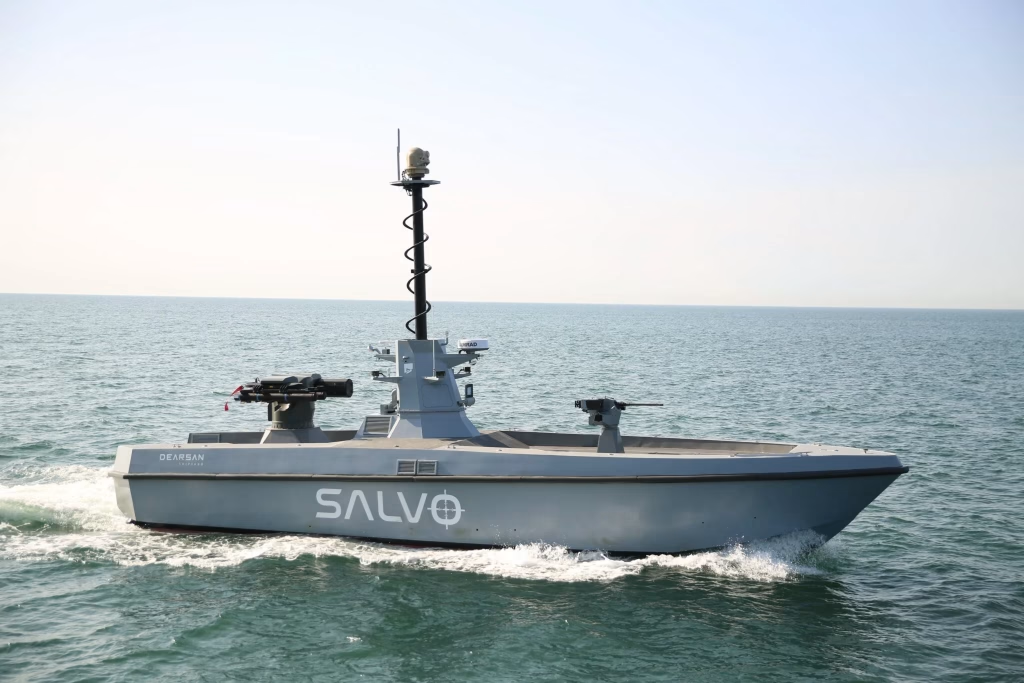
Operational Flexibility in the Caspian Theatre
One of the Salvo’s core strengths is its flexible command architecture. It can be remotely controlled from land-based stations or naval command ships, enabling rapid redeployment across operational zones. This adaptability supports Azerbaijan’s broader strategy of integrating unmanned systems into its maritime order of battle.
The unveiling coincides with an uptick in naval activities among Caspian littoral states. Russia, Iran, and Turkmenistan maintain sizable fleets in the region, prompting Azerbaijan to modernize its naval assets and expand surveillance, patrol, and deterrence capabilities.
Strategic Context: Shifting Security Dynamics in the Caspian
The Caspian Sea, while landlocked and governed by a specific legal framework agreed upon by its five littoral states, has witnessed increasing security competition. Expanded exercises, heightened surveillance, and territorial defense initiatives have reshaped the maritime balance. Azerbaijan’s adoption of the Salvo USV aligns with a regional trend toward unmanned solutions for maritime security, reflecting global naval modernization patterns.
For Azerbaijan, integrating such a platform not only strengthens national defense but also signals its intent to remain a proactive security actor in the Caspian basin. The Salvo’s deployment enhances deterrence, improves asymmetric response capabilities, and reduces risk to crewed vessels in contested environments.
Conclusion
The Azerbaijani Navy’s unveiling of the Turkish-made Salvo USV represents a clear statement of intent in the evolving maritime security landscape of the Caspian Sea. As unmanned naval technologies mature, their role in shaping deterrence and operational flexibility is set to grow, with Azerbaijan now firmly part of this strategic shift.
Internal Link: Türkiye’s Naval Unmanned Systems Development
External Link: Defence Blog – Azerbaijan unveils armed naval drone

